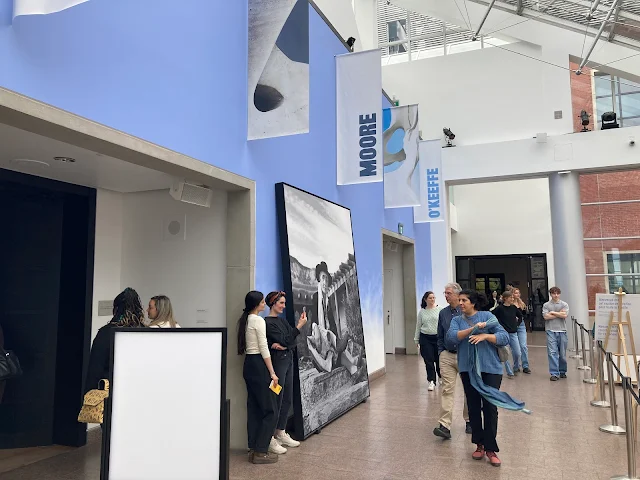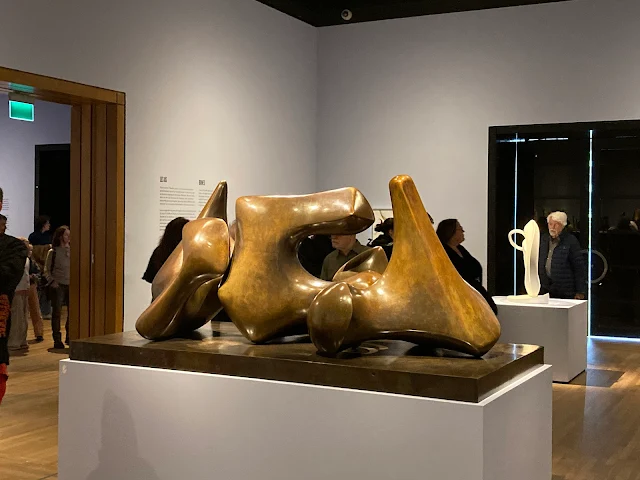 |
| Bernard Keble Sandwell |
By Bernard K, Sandwell, B.A.
Bernard Keble Sandwell was born in 1876; he was educated at the University of Toronto and earned a B.A. (first-class honours in classics) in 1897. He is the author of The Musical Red Book of Montreal (1907) and The Molson Family (1933), and other books. This essay was first published in Canada’s Future, what she offers after the war (1916).
The economic and social life of the English-speaking people of Canada has much in common with that of the Americans. Their political institutions, up to the point where autonomy begins to be limited by the sovereignty of the Imperial Parliament, have almost everything in common with those of Great Britain. Their ethnic character is much more purely English, Scottish, and Irish than that of the Americans, because they were subjected much later than the latter to the influences of the vast stream of continental European immigration, and the Canadian national mind is scarcely beginning to feel the various non-British impulses which have been a strong factor in American art and literature for a generation. Yet in their tastes, their ideas, their manner of living, they are governed much more largely by American tastes, manners, and ideas than by those of Great Britain ; much more largely than one would expect from their lack of racial and political community with the Americans. A nation of six millions (omitting for a moment the French-speaking portion of the population), has dwelt elbow to elbow, along a frontier of thousands of miles, with a nation of ninety millions, and speaking the same language, from the beginning of its history. In the industrial world it has achieved independence by a policy of carefully adjusted customs duties. In the intellectual world no customs duties have much effect. The proximity of the United States has influenced the art and literature of Canada, not so much by colouring the methods, as by limiting the output. Canadians have not been as conscious as they might have been of the need for self-expression, because they have been abundantly supplied with art and literature expressive of the neighbouring Republic. At the same time Canadians who had the gift of expression, were far too frequently attracted to the United States, where greater wealth and larger population ensured the artist a better reward. Even among the men of high ability who did not actually remove to the United States (or to England, which also exercised its attractive power upon some), the necessity of writing with a view to American or British publication, if they were to secure *a large public and a decent financial reward, prevented them from seeking to express purely Canadian concepts for a purely Canadian public, and required them to adapt their work largely to non-Canadian standards of taste. Meanwhile, the Canadian public, long habituated to seeing non 'Canadian' standards observed even by its own Canadian writers, to having them deal with American subjects or adopt an American point of view, has largely come to the conclusion that there is no national Canadian art and no need for one ; that Canadian literature is sufficiently upheld by a body of Canadian-born writers living in New York, or writing in Canada for New York periodicals ; and that the country is too young, or too poor, or too busy, to be able to maintain a body of writers and artists devoted to the business expressing Canada for Canadians.
Much of the most successful work of Canadian writers of the last fifty years is as little expressive of Canada of the true mind of the Canadian people as the work of the Irish dramatists of the Victorian era was expressive of the mind of Ireland. Some of the external aspects of Canadian life have been portrayed with skill ; the deeper issues have scarcely been touched. Matters upon which the heart of the English-speaking Canadian can be touched to a fire of impassioned feeling, a fire capable of attaining the white heat of tragedy, are not numerous, and do not change much from generation to generation. Even so, our writers pay small attention to them. From the earliest days, the intense conviction of the typical English-speaking Canadian (and here he was at one with his French-speaking brethren) was that his heritage of Canadian soil must be preserved from becoming a part of the great experiment in new governmental methods and new ideals to the south of him. This is the first of the great 'Canadian passions.
Up to 1812, time and again, he maintained that conviction by force of arms. Later, the conflict was transferred to other and more peaceful fields, and became a calm and finally a very friendly struggle ; but the conviction still stands, and the Canadian still maintains with dogged pertinacity and not infrequently with much self-sacrifice, his determination that his country shall develop upon its own lines and within its own limits. It can is curious, by the way, and significant of the concentration of attention upon political and economic matters, that the vast importance of a characteristic native art and literature to full national development has never been taken to heart, when so much energy has been spent upon safe-guarding the Canadianism of political institutions, transportation routes, industries, educational systems, and financial; powers.
When the danger of forcible Americanization had been finally disposed of by the War of 1812, there came for a time another struggle. Canadians began to perceive that too much Downing Street might be as fatal to the ideals which they were unconsciously forming for the new nation, as too much Washington; and there ensued that struggle for responsible government, and for a proper distribution of the powers of government among local and central bodies, which was finally ended by the British North America Act. The constitution provided by that Act has worked very satisfactorily indeed, until the present world-convulsion; but if the need for further readjustment should now be felt, there may be a renewal of (the clash of contending ideals which (however painful at the time) is so invaluable for the development of a rounded national consciousness.
To these two matters of passionate feeling among Canadians may be added a third, perhaps the deepest and most abiding of all. In the political life of the United 'States religious controversy has scarcely any part; in the political and social life of Canada it is all-pervasive. The United States was founded, and its constitution drawn up, by men who wereall of very similar religious attitude ; Canada consists of different races, with widely differing conceptions of the relationship of church and state, church and family, church and individual. The efforts of these different races and different conceptions to advance themselves, the attrition of such different nation-materials, their conflicts and compromises for the development of a united Canada, form the most promising material that any deep-probing novelist could demand for the exercise of his art ; but efforts to treat them seriously have been almost nil. As for drama, there exists no machinery for the presentation of Canadian plays to a Canadian public.
In the fine arts, national development has gone a good deal further in painting than in fiction and poetry, although the emigration to the United States and to Europe of good artists in both metiers has been deplorably large. Poetry is less of a business than novel- writing, requires less of a public for its support, and can be carried on by persons engaged for a livelihood in other more productive occupations, such as the Civil Service and various professions. In the case of Robert "W. Service, we seem to have evidence that in this decade a Canadian poet, writing primarily for a Canadian public, can even make a profitable living out of verse, providing he possesses a certain knack of capturing the popular ear. In painting, which is supported directly by the munificence of the wealthy classes, there has of late been an evident disposition on the part of patrons to encourage Canadian subjects and methods of treatment, and a corresponding development of self-reliance and self-respect among Canadian artists. The external influences at work upon Canadian painting are much more European than American. This may be accounted for by the fact that, in order to experience the influence of American art, a student must go to the United States, and those Canadians who have done so have, as a rule, remained there and enlisted in the American artistic army.
We thus find that the artistic impulse in Canada has been overshadowed in varying degrees, according to the nature of the field, by the greater, more developed, and more self-conscious nation to the south. That Canadian art is, by degrees, emerging from the shadow, is equally evident. Forces are now commencing to work which must immensely hasten the task of emancipation. The war is affecting Canadian art and literature, for their great and abiding good, in at least two ways. It has diverted the attention of serious Canadians from the purely economic tasks and problems on which the nation has been concentrated for the last twenty-five years, and has stimulated interest in very much higher things matters of 'the mind and soul. On the other hand, it has given Canadians a vastly enhanced consciousness of the value and meaning of their nationhood, not in the realm of dollars and cents, and tons of steel, and bushels of wheat, but as a factor in the eternal world-wide struggle between right and wrong. Alone among the peoples of this hemisphere, Canada has borne her share, in sacrifice of blood and treasure, in the conflict which has racked the world. Alone among the peoples of this hemisphere, Canada has joined hands with the -great nations of the East and West in the fight for national liberties and the dethronement of autocracy and tyranny. A nation with this experience behind it will never again consent to accept its artistic ideals, wholesale and unmodified, from another nation however great and prosperous which has lifted no hand in the fight. Canada has new national experiences, understandings and aspirations, which will more than ever call for expression in a purely Canadian <art and literature. Canada has a place among the nations, a right to a seat in council, which all her wealth and prosperity of the last quarter century could never have given her, but which became hers on the day when her sons stemmed the German rush at Ypres and at St. Julien. If a finer culture and a prouder national consciousness are the first results of Canadian participation in the war, there need be no doubt that a stronger and purer national art and literature will follow closely after.





.JPG)
.JPG)












































